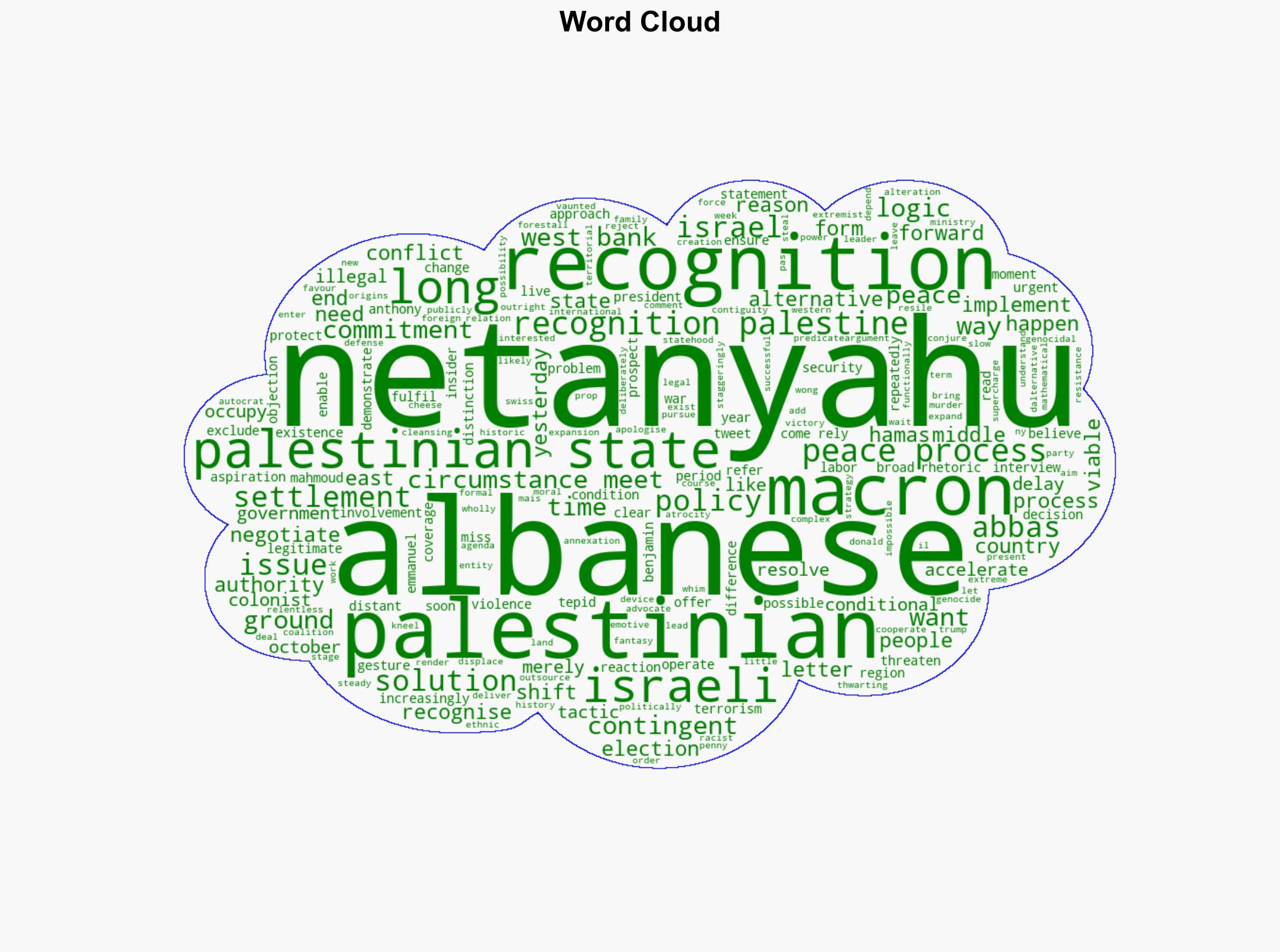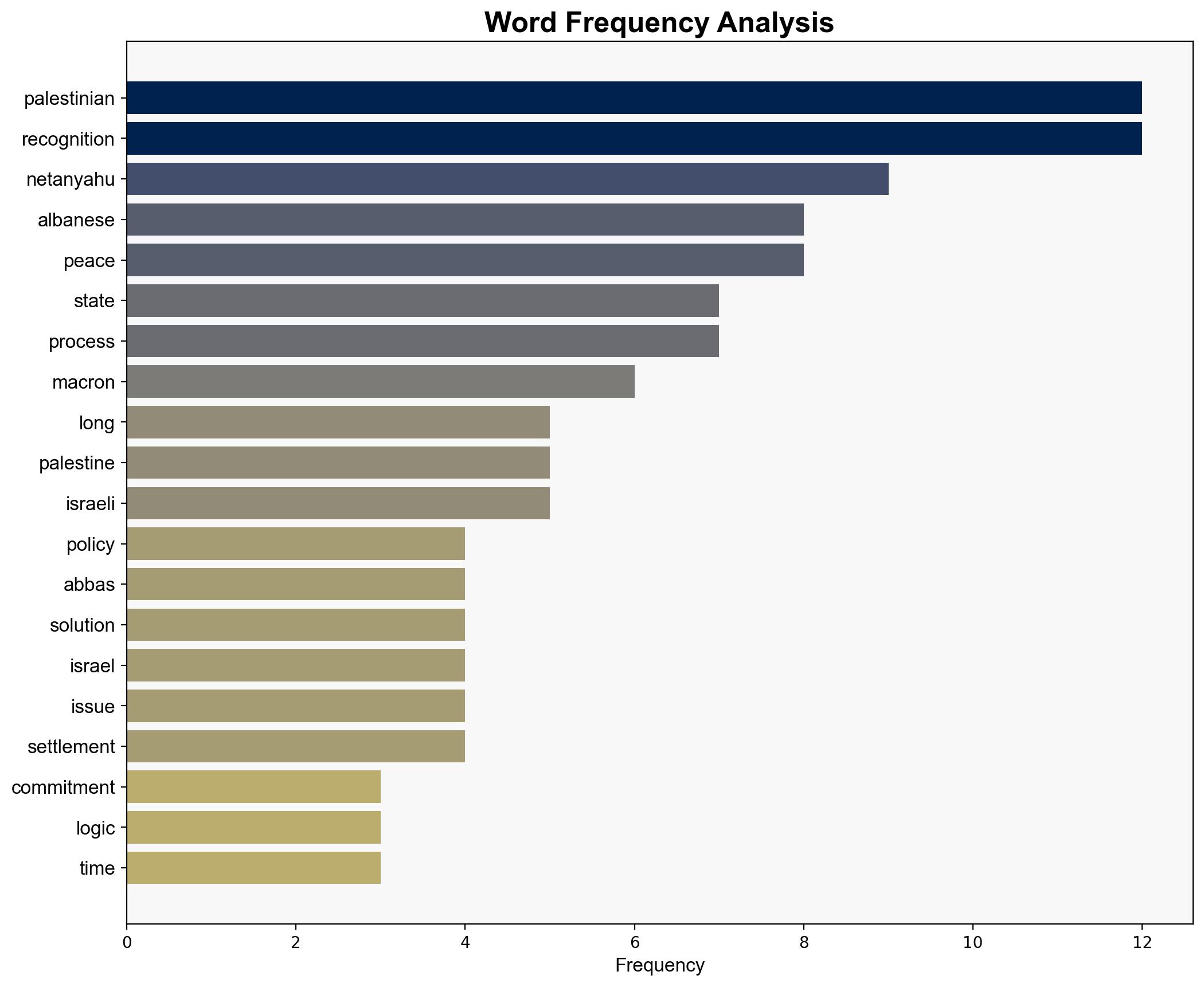On Palestinian recognition Albanese has outsourced Australian foreign policy to Netanyahu – Crikey
Published on: 2025-07-28
Intelligence Report: On Palestinian recognition Albanese has outsourced Australian foreign policy to Netanyahu – Crikey
1. BLUF (Bottom Line Up Front)
The most supported hypothesis is that Anthony Albanese’s approach to Palestinian recognition is influenced by a strategic calculation to align with Israeli interests, potentially at the expense of Australia’s independent foreign policy stance. Confidence level: Moderate. Recommended action: Australia should reassess its foreign policy strategy to ensure it aligns with its long-term national interests and values, rather than being overly influenced by external actors.
2. Competing Hypotheses
1. **Hypothesis A**: Albanese’s reluctance to recognize Palestine is a strategic decision to maintain strong diplomatic ties with Israel, influenced by Netanyahu’s policies and regional dynamics.
2. **Hypothesis B**: Albanese’s stance is primarily driven by internal political considerations and a desire to avoid domestic controversy, rather than external pressures from Israel.
3. Key Assumptions and Red Flags
– **Assumptions for Hypothesis A**: Albanese values the strategic alliance with Israel and believes that aligning with Netanyahu’s policies will benefit Australia’s geopolitical interests.
– **Assumptions for Hypothesis B**: Domestic political stability and avoiding controversy are prioritized over foreign policy independence.
– **Red Flags**: The lack of a clear, independent rationale from Albanese for delaying recognition of Palestine suggests potential external influence. The reliance on Netanyahu’s stance could indicate a strategic blind spot.
4. Implications and Strategic Risks
– **Geopolitical Risks**: Aligning too closely with Israel may alienate Australia from other Middle Eastern nations and complicate its role in international diplomacy.
– **Domestic Risks**: Perceived outsourcing of foreign policy could lead to domestic criticism and undermine public confidence in the government’s decision-making.
– **Escalation Scenarios**: Continued settlement expansion and lack of progress towards a peace process could exacerbate regional tensions, impacting Australia’s diplomatic relations.
5. Recommendations and Outlook
- Australia should engage in multilateral discussions to foster a balanced approach to Middle Eastern policy, ensuring it is not overly reliant on any single nation’s agenda.
- Scenario-based Projections:
- **Best Case**: Australia successfully navigates its foreign policy to support a peaceful resolution in the Middle East, enhancing its international standing.
- **Worst Case**: Over-reliance on Israeli policy leads to diplomatic isolation and increased regional tensions.
- **Most Likely**: Continued diplomatic balancing act with incremental policy adjustments.
6. Key Individuals and Entities
– Anthony Albanese
– Emmanuel Macron
– Mahmoud Abbas
– Benjamin Netanyahu
– Donald Trump
7. Thematic Tags
national security threats, foreign policy strategy, Middle East diplomacy, geopolitical alignment





